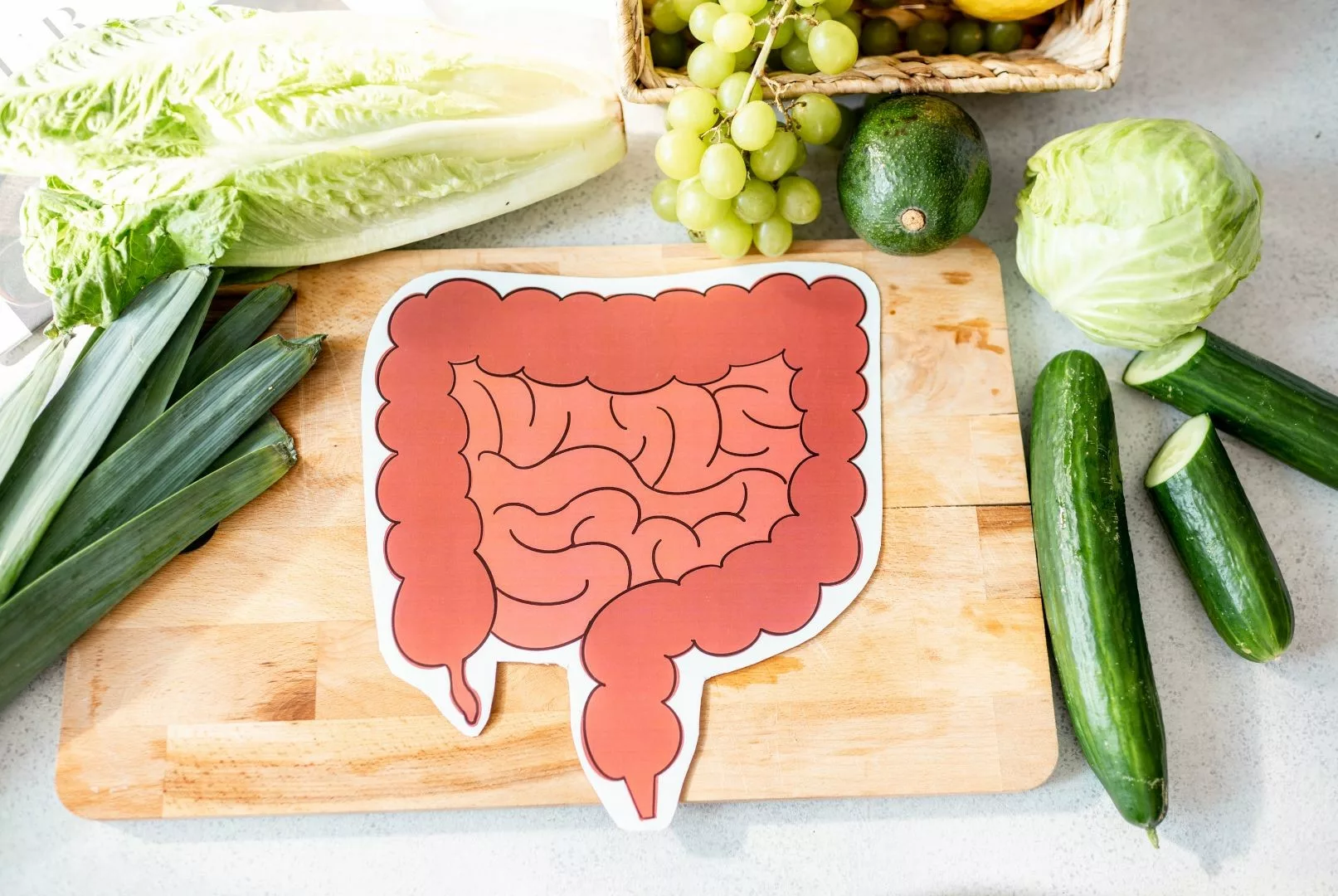Are you looking to improve your gut health and reduce inflammation? Look no further than the science-backed Keto diet. This low-carb, high-fat diet has gained significant popularity for not only its weight loss benefits but also its impact on gut inflammation. By greatly reducing your carbohydrate intake and increasing healthy fats, the Keto diet forces your body into a state of ketosis, where it burns fat for fuel instead of glucose. But how does this impact gut inflammation? Recent studies have shown that the Keto diet can reduce gut inflammation by promoting a healthy balance of gut bacteria and reducing the production of inflammatory compounds. In this article, we will delve into the science behind the Keto diet, explore its impact on gut inflammation, and provide helpful tips on how to incorporate this diet into your lifestyle. Get ready to discover the powerful relationship between the Keto diet and gut health!
This article digs into the details of Keto diet and gut inflammation reduction back by science.
Understanding gut inflammation and its impact on overall health
Gut inflammation, also known as intestinal inflammation, occurs when the lining of the gut becomes irritated and inflamed. This can lead to a variety of health issues, including digestive problems, autoimmune disorders, and even mental health conditions. The gut plays a crucial role in the overall health of our bodies. It is responsible for absorbing nutrients, eliminating waste, and supporting a strong immune system.
When the gut becomes inflamed, it can disrupt the delicate balance of bacteria in the gut, known as the gut microbiome. This imbalance can lead to an overgrowth of harmful bacteria and a decrease in beneficial bacteria, which can further contribute to inflammation. Additionally, gut inflammation can increase the permeability of the gut lining, allowing harmful substances to leak into the bloodstream and trigger an immune response.
The science behind Keto diet and gut inflammation reduction
The Keto diet, short for the ketogenic diet, is a low-carbohydrate, high-fat diet that has been used for decades to treat epilepsy in children. In recent years, it has gained popularity as a weight loss diet and has been studied for its potential health benefits beyond weight loss. The main principle behind the Keto diet is to drastically reduce carbohydrate intake and replace it with healthy fats.
By severely limiting carbohydrates, the body is forced to enter a state of ketosis. Ketosis occurs when the body doesn’t have enough glucose from carbohydrates to use as fuel and instead starts breaking down fat for energy. This metabolic state has been shown to have numerous health benefits, including weight loss, improved insulin sensitivity, and increased energy levels.
Benefits of the keto diet in reducing gut inflammation
One of the key benefits of the Keto diet in reducing gut inflammation is its effect on the gut microbiome. Research has shown that the Keto diet can promote the growth of beneficial bacteria in the gut, such as Bifidobacteria and Lactobacillus, while reducing the levels of harmful bacteria, such as Clostridium and Escherichia coli. This shift in the gut microbiome towards a healthier balance can help reduce inflammation and improve gut health.
In addition to promoting a healthy gut microbiome, the Keto diet also reduces the production of inflammatory compounds in the body. When the body is in a state of ketosis, it produces ketones as an alternative fuel source. These ketones have been shown to have anti-inflammatory properties, helping to reduce inflammation in the gut and throughout the body.
Research studies supporting the link between the keto diet and gut inflammation
Several research studies have explored the link between the Keto diet and gut inflammation. A study published in the journal Gut Microbes found that the Keto diet increased the production of short-chain fatty acids (SCFAs) in the gut. These SCFAs have been shown to have anti-inflammatory effects and can help improve gut health.
Another study published in the journal Cell Reports found that the Keto diet reduced gut permeability and inflammation in mice with colitis. The researchers concluded that the Keto diet could be a potential therapeutic approach for gut inflammation-related disorders.
Tips for implementing the keto diet to reduce gut inflammation
If you’re interested in trying the Keto diet to reduce gut inflammation, here are some tips to help you get started:
- 1. Gradually reduce your carbohydrate intake: Instead of drastically cutting out all carbohydrates, start by gradually reducing your intake. This will help your body adjust to using fat as its primary fuel source.
- 2. Focus on healthy fats: Include sources of healthy fats in your diet, such as avocados, nuts, seeds, and olive oil. These fats not only provide energy but also support a healthy gut.
- 3. Increase your fiber intake: While the Keto diet is low in carbohydrates, it’s still important to consume an adequate amount of fiber. Include non-starchy vegetables, such as leafy greens, broccoli, and cauliflower, to ensure you’re getting enough fiber.
- 4. Stay hydrated: Drinking plenty of water is essential for the Keto diet. It helps support digestion, keeps your body hydrated, and aids in the removal of toxins.
- 5. Consider supplements: Certain supplements, such as probiotics and omega-3 fatty acids, can further support gut health while on the Keto diet. Consult with a healthcare professional to determine which supplements are right for you.
Potential side effects and considerations of the keto diet
While the Keto diet can offer numerous benefits, it’s important to be aware of potential side effects and considerations. Some common side effects of the Keto diet include:
- 1. Keto flu: In the initial stages of transitioning to the Keto diet, some individuals experience flu-like symptoms, such as fatigue, headache, and irritability. These symptoms usually subside within a few days.
- 2. Nutrient deficiencies: Since the Keto diet restricts certain food groups, it’s important to ensure you’re getting all the necessary nutrients. Consider working with a registered dietitian to develop a balanced meal plan.
- 3. Increased risk of kidney stones: The Keto diet can lead to an increased risk of kidney stones in some individuals. Staying hydrated and including sources of calcium in your diet can help reduce this risk.
- 4. Cholesterol levels: While the Keto diet can lead to weight loss and improved insulin sensitivity, it can also increase LDL cholesterol levels in some individuals. Regular monitoring of cholesterol levels is recommended.
Other dietary and lifestyle factors that can impact gut inflammation
While the Keto diet can be beneficial for reducing gut inflammation, it’s important to consider other dietary and lifestyle factors that can also impact gut health. Here are some additional tips to support a healthy gut:
- 1. Include fermented foods: Fermented foods, such as yogurt, sauerkraut, and kimchi, are rich in beneficial bacteria that can support a healthy gut microbiome.
- 2. Reduce stress: Chronic stress can disrupt the balance of bacteria in the gut and contribute to inflammation. Incorporate stress-reducing activities, such as meditation, yoga, or deep breathing exercises, into your daily routine.
- 3. Get regular exercise: Exercise has been shown to have numerous benefits for gut health, including reducing inflammation and improving digestion. Aim for at least 30 minutes of moderate-intensity exercise most days of the week.
- 4. Limit processed foods: Processed foods are often high in unhealthy fats, sugars, and additives, which can disrupt the balance of bacteria in the gut. Opt for whole, unprocessed foods whenever possible.
Personal stories and testimonials of individuals who have experienced improvements in gut inflammation with the keto diet
Many individuals have reported significant improvements in gut inflammation and overall gut health after adopting the Keto diet. Personal stories and testimonials can provide valuable insights and motivation for those considering the Keto diet. Here are a few examples:
– Sarah, a 35-year-old mother of two, struggled with chronic gut inflammation for years. After starting the Keto diet, she noticed a significant reduction in symptoms, including bloating and abdominal pain. She credits the Keto diet for improving her gut health and overall well-being.
– Mark, a 45-year-old accountant, was diagnosed with ulcerative colitis, a form of inflammatory bowel disease. After researching different dietary approaches, he decided to try the Keto diet. Within a few months, his symptoms improved, and he was able to reduce his medication dosage.
Conclusion:
The Keto diet can be a powerful tool for reducing gut inflammation and improving gut health. However, it’s important to remember that everyone’s body is unique, and what works for one person may not work for another. Before starting any diet or lifestyle changes, it’s crucial to consult with a healthcare professional, especially if you have any underlying health conditions or are taking medication.
By understanding the science behind the Keto diet and its impact on gut inflammation, you can make informed decisions about your health and well-being. Remember to listen to your body, make gradual changes, and prioritize a balanced approach to nutrition. With the right guidance and support, you can embark on a journey toward better gut health and overall wellness.






